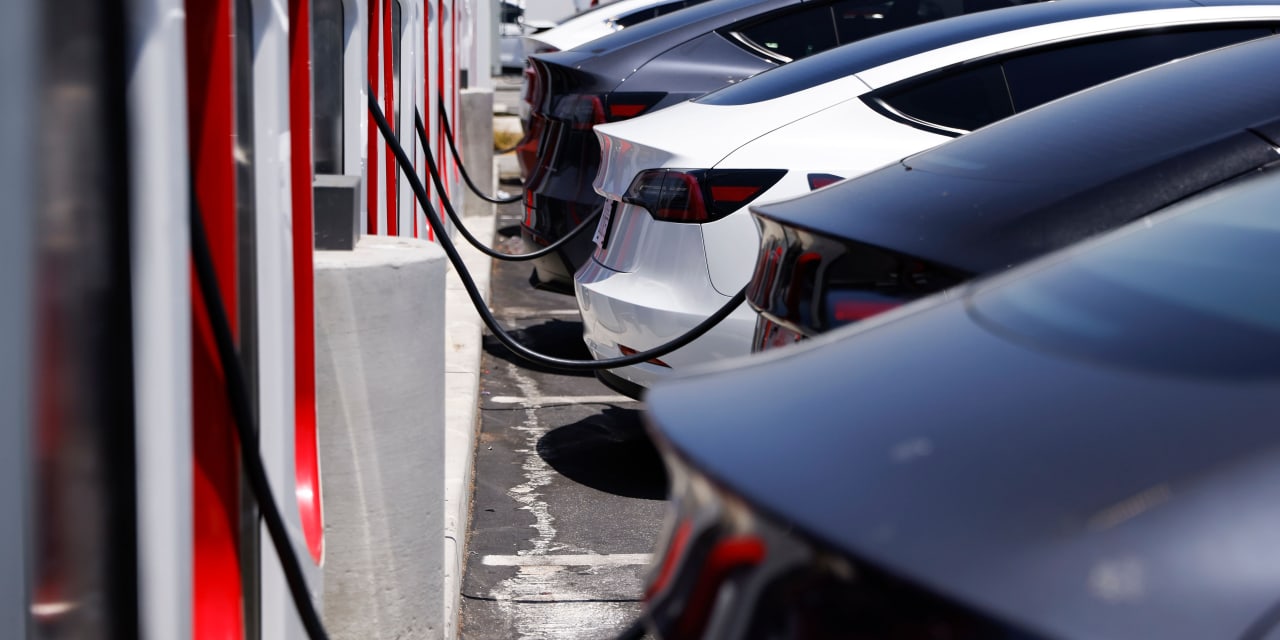Car Dealers Intensify Fight Against EV Sales Mandates

Table of Contents
Economic Concerns and the Transition to EVs
The transition to electric vehicles presents substantial economic hurdles for car dealerships. The high upfront investment required to adapt to this new landscape is a major sticking point. Dealerships must invest heavily in new infrastructure, including the installation of charging stations, specialized EV servicing equipment, and training for their staff to handle the unique technical aspects of electric cars. This significant capital expenditure can strain even the most profitable dealerships, especially those in smaller markets.
Furthermore, the profit margins on EVs are currently lower than those on gasoline-powered vehicles. This disparity is partly due to the higher manufacturing costs of EVs and the intense competition in the emerging EV market. The reduced profitability per vehicle sold directly impacts the dealerships' bottom line, posing a serious threat to their financial stability. The uncertainty surrounding consumer demand for EVs in the short term adds another layer of complexity, making long-term investment planning extremely challenging.
- Increased inventory costs for EVs: Electric vehicles often have higher sticker prices than comparable gasoline cars, leading to increased capital tied up in inventory.
- Need for specialized technicians and training: Servicing EVs requires specialized knowledge and tools, necessitating costly training programs for existing technicians.
- Uncertainty in government incentives and consumer subsidies: Fluctuations in government support for EV purchases create instability in the market and impact dealer profitability.
- Marketing and consumer education challenges: Educating consumers about the benefits and practicalities of owning an EV requires significant marketing investment.
Concerns Regarding Consumer Readiness and Infrastructure
Beyond the economic challenges, significant concerns remain regarding consumer readiness and the lack of adequate infrastructure to support widespread EV adoption. The limited availability of public charging stations, especially in rural areas, presents a major obstacle. This "range anxiety," the fear of running out of charge before reaching a charging station, remains a considerable deterrent for many potential EV buyers. Adding to this, charging times are often significantly longer than refueling a gasoline vehicle, impacting convenience.
The overall cost of ownership, encompassing the initial purchase price, charging costs, and potential battery replacement expenses, can also be a major factor hindering consumer adoption. The limited availability of EV models, especially in certain price ranges, further restricts consumer choice.
- Geographical disparities in charging infrastructure: The uneven distribution of charging stations creates significant barriers to EV adoption in many regions.
- Consumer concerns about battery life and charging speed: Concerns about battery degradation and long charging times remain significant obstacles to wider acceptance.
- Lack of choice in EV models and price points: The relatively limited selection of EV models and their often higher price tags restrict consumer choice.
- Public perception and misinformation surrounding EVs: Misconceptions about EV performance, maintenance, and environmental impact continue to hinder adoption.
Lobbying Efforts and Political Pressure
Faced with these challenges, car dealer associations are actively lobbying policymakers to mitigate the impact of EV sales mandates. They are arguing for a more gradual transition, emphasizing the need to address the economic and infrastructural concerns before imposing stringent quotas. This involves a multifaceted strategy encompassing direct lobbying of state and federal legislators, public relations campaigns aimed at shaping public opinion, and collaboration with other industry stakeholders. Legal challenges to the mandates are also being explored in some jurisdictions.
- Direct lobbying of state and federal legislators: Dealer associations are engaging directly with lawmakers to influence policy decisions on EV mandates.
- Public relations campaigns to shape public opinion: Efforts are underway to educate the public about the challenges faced by dealerships in the transition to EVs.
- Collaboration with other industry stakeholders: Dealerships are working with other automotive industry players to create a unified front against overly aggressive mandates.
- Legal challenges to the mandates: Legal action is being considered in some areas to challenge the legality or enforceability of the mandates.
Alternative Solutions and Collaborative Approaches
A balanced approach is crucial. Rather than outright opposition, exploring alternative solutions that address both dealer concerns and climate goals is essential. Government incentives and support for dealer training and infrastructure development could significantly ease the transition. Incentivizing the development of charging infrastructure, particularly in underserved areas, could alleviate range anxiety and boost consumer confidence. Furthermore, government-supported training programs could equip dealerships with the skills and tools needed to effectively service and sell EVs. Collaboration between the government and the automotive industry is key to accelerating a smooth and responsible transition to electric vehicles.
Conclusion: The Ongoing Battle Over EV Sales Mandates
The resistance of car dealers to EV sales mandates stems from a combination of legitimate economic concerns, infrastructural challenges, and anxieties regarding consumer readiness. The ongoing lobbying efforts highlight the need for a balanced approach that acknowledges these concerns while pursuing environmental sustainability. A collaborative effort involving government incentives, infrastructure development, and targeted support for dealerships is vital to ensuring a successful and equitable transition to a future powered by electric vehicles.
Stay informed about the ongoing debate surrounding EV sales mandates. Learn more about the challenges facing car dealers in the transition to EVs and get involved in the conversation about responsible EV adoption. The future of transportation depends on finding solutions that work for everyone.

Featured Posts
-
 Die 50 2025 Teilnehmer Rausgeworfen Stream Folgen Alle Infos Zur 2 Staffel
Apr 23, 2025
Die 50 2025 Teilnehmer Rausgeworfen Stream Folgen Alle Infos Zur 2 Staffel
Apr 23, 2025 -
 Nestor Cortes Strong Start A Rebound Performance Against Cincinnati
Apr 23, 2025
Nestor Cortes Strong Start A Rebound Performance Against Cincinnati
Apr 23, 2025 -
 Royals Lose Heartbreaker Walk Off Bunt Ends Game
Apr 23, 2025
Royals Lose Heartbreaker Walk Off Bunt Ends Game
Apr 23, 2025 -
 Marches Boursiers Bfm Revue Du 17 Fevrier 15h 16h
Apr 23, 2025
Marches Boursiers Bfm Revue Du 17 Fevrier 15h 16h
Apr 23, 2025 -
 Section 230 And Banned Chemicals On E Bay A Judges Ruling
Apr 23, 2025
Section 230 And Banned Chemicals On E Bay A Judges Ruling
Apr 23, 2025
